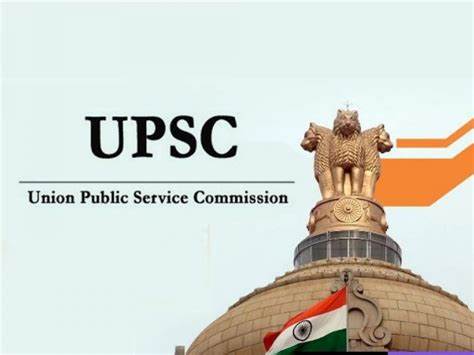
The Union Public Service Commission (UPSC) is one of the most prestigious and challenging examinations in India. Known for its rigorous selection process and high standards, the UPSC examination paves the way for a career in civil services and various other prestigious roles in the Indian government. This article provides a detailed guide to the UPSC, covering everything from the examination process to preparation tips.
What is UPSC?
The Union Public Service Commission (UPSC) is India’s central agency responsible for conducting various examinations to recruit candidates into the Indian Civil Services and other central government services. Established in 1926, the UPSC’s primary role is to ensure that the recruitment process for civil services and other top positions in the Indian government is fair and transparent.
Key Responsibilities of UPSC
- Conducting Examinations: UPSC conducts competitive examinations such as the Civil Services Examination (CSE), Indian Forest Service (IFS) Examination, and Indian Engineering Service (IES) Examination.
- Recommending Candidates: The commission recommends candidates for appointment to various services based on their performance in these examinations.
- Advisory Role: UPSC advises the President of India and other authorities on matters related to appointments and promotions within the central government.
UPSC Examination Process
The UPSC examination is known for its comprehensive and challenging nature. It is divided into several stages designed to test candidates’ knowledge, analytical abilities, and overall suitability for a career in civil services.
1. Civil Services Examination (CSE)
The Civil Services Examination (CSE) is the most prominent examination conducted by UPSC. It consists of three stages:
- Preliminary Examination: This is a screening test consisting of objective-type questions. It is divided into two papers: General Studies and Civil Services Aptitude Test (CSAT). The preliminary examination serves as a filter to shortlist candidates for the main examination.
- Main Examination: The main examination is descriptive in nature and consists of nine papers, including essays, general studies, and optional subjects. This stage tests the depth of knowledge and the ability to articulate answers effectively.
- Interview (Personality Test): The final stage of the examination is the interview or personality test, which assesses candidates’ suitability for a career in civil services through a personal interview.
2. Indian Forest Service (IFS) Examination
The IFS Examination is specifically for recruiting officers for the Indian Forest Service. It includes:
- Preliminary Examination: Similar to the CSE, this includes objective-type questions.
- Main Examination: This consists of descriptive papers related to forestry, general studies, and an optional subject.
- Interview: A personal interview to assess the candidate’s suitability for the forest services.
3. Indian Engineering Service (IES) Examination
The IES Examination recruits engineers for various central government departments. It includes:
- Preliminary Examination: Objective-type questions focusing on engineering subjects.
- Main Examination: Descriptive papers on engineering subjects.
- Interview: A personality test to evaluate the candidate’s technical knowledge and suitability for the role.
Key Subjects and Syllabus
The UPSC syllabus is extensive and varies depending on the examination. Here’s a brief overview:
For Civil Services Examination (CSE):
- General Studies: This includes topics such as history, geography, polity, economy, and environment.
- Civil Services Aptitude Test (CSAT): Focuses on reasoning, quantitative aptitude, and comprehension skills.
- Optional Subjects: Candidates choose from a wide range of subjects like anthropology, geography, sociology, and more.
For Indian Forest Service (IFS):
- General Studies: Similar to the CSE syllabus.
- Forestry: Specific subjects related to forestry, environment, and ecology.
- Optional Subjects: Candidates choose from subjects related to engineering, agriculture, or science.
For Indian Engineering Service (IES):
- Engineering Subjects: The syllabus includes subjects from various engineering disciplines such as civil, mechanical, electrical, and electronics engineering.
Preparation Tips for UPSC
Preparing for UPSC is a demanding and time-consuming process. Here are some essential tips to help you navigate your preparation effectively:
1. Understand the Syllabus and Exam Pattern
Thoroughly familiarize yourself with the syllabus and exam pattern for the specific UPSC examination you are targeting. Knowing the structure will help you organize your study plan.
2. Create a Study Plan
A well-structured study plan is crucial. Allocate time for each subject based on its weight and your strengths and weaknesses. Ensure that you cover the entire syllabus and revise regularly.
3. Use Quality Study Material
Select study materials and books that are recommended by experts and previous successful candidates. Standard reference books, NCERT textbooks, and current affairs magazines are essential resources.
4. Practice Previous Years’ Papers
Practicing previous years’ question papers helps in understanding the exam pattern and the type of questions asked. It also aids in time management during the examination.
5. Take Mock Tests
Regular mock tests help in assessing your preparation level and identifying areas that need improvement. They also help in building exam-taking strategies.
6. Stay Updated with Current Affairs
For both the preliminary and main examinations, current affairs play a significant role. Regularly read newspapers, watch news, and follow reputable current affairs sources.
7. Maintain Physical and Mental Health
UPSC preparation is intense, and it’s essential to maintain your health. Regular exercise, a balanced diet, and sufficient sleep are crucial for staying focused and effective.
Common FAQs About UPSC
1. How many times can I attempt the UPSC Civil Services Examination?
The number of attempts allowed depends on your category. For general category candidates, it’s six attempts, while for OBC candidates, it’s nine attempts, and SC/ST candidates have no limit as long as they meet the age criteria.
2. What is the age limit for UPSC exams?
The age limit varies based on the category. Generally, for the Civil Services Examination, the age limit is 32 years for general candidates, 35 years for OBC candidates, and 37 years for SC/ST candidates.
3. How long does it take to prepare for UPSC?
Preparation time varies for each individual. On average, candidates spend around 12-18 months preparing for the UPSC exams. It depends on your prior knowledge, study plan, and dedication.
4. Is coaching necessary for UPSC preparation?
While coaching can be beneficial for some candidates, it is not mandatory. Many candidates successfully prepare using self-study methods and online resources.
The UPSC examination is a gateway to a prestigious career in civil services and other central government positions. With its challenging nature, it requires a dedicated and strategic approach to preparation. By understanding the examination process, preparing effectively, and maintaining a balanced lifestyle, you can increase your chances of success in this esteemed examination. Whether you are just beginning your preparation or looking to refine your strategy, this guide provides a comprehensive overview to help you navigate the UPSC journey.




